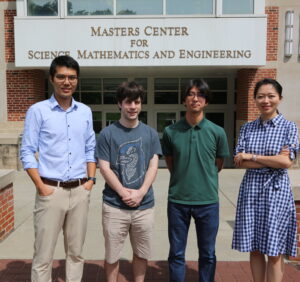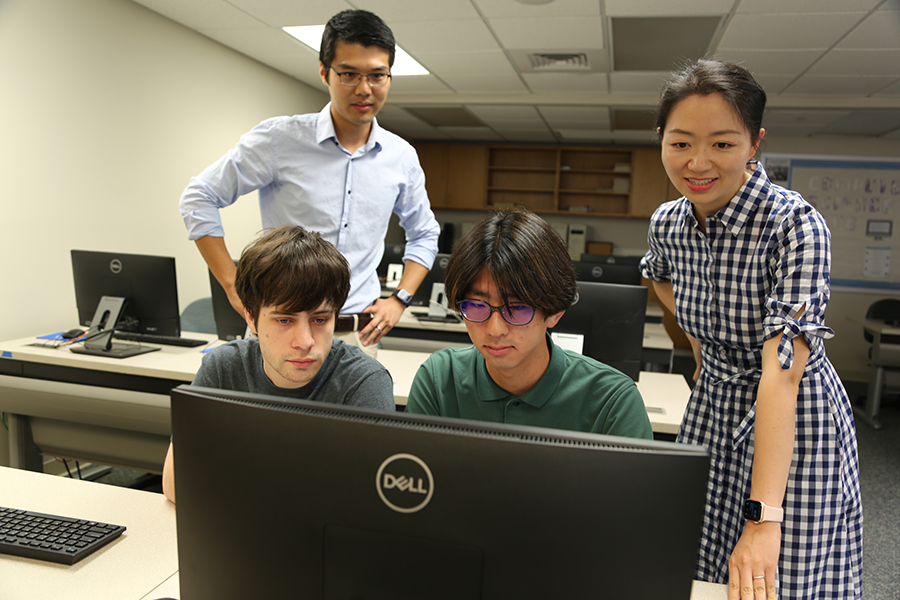Two Elizabethtown College students are working to enhance machine learning to develop real-time malware detection. Using state-of-the-art programs, Yusuke Santani ’25 and Ethan Weitkamp ’23 are creating malware detection that proactively searches for viruses people may not know about, such as malware from smart thermostats.
Their research is building off past Summer Creative Arts and Research Program (SCARP) projects focused on network detection systems.
Title of Research
NetSec: Accelerated Malware Detection in Executable Files with Machine Learning
Student Researchers
Yusuke Satani ’25 (Data Science major)
Ethan Weitkamp ’23 (Data Science and Computer Science major)
Faculty Mentors
Jingwen Wang, Assistant Professor of Computer Science
Peilong Li, Assistant Professor of Computer Science
What are you researching?
Yusuke: My research focuses on malware detection from IoT devices without delay.
Ethan: We are using machine learning to detect malware in Windows executable files and Android apk files live on a network.
Why did you choose this topic?
Yusuke: This topic attracted me because I’m interested in data analytics.
Ethan: Malware is an increasing problem that machine learning can contribute greatly toward combatting.
What is the most interesting aspect of this research?
Yusuke: The most interesting aspect of this research has been creating a system that immediately detects virus attacks.
Ethan: I think seeing the result of all the individual programs working together to provide live malware detection is the most interesting.
How have your faculty mentors helped you?
Yusuke: This project is so sophisticated and can be difficult at times. However, my mentors help me patiently and answer my questions kindly.
Ethan: My mentor helps by providing goals to work toward every week and gives insight when I might be stuck on something or going down the wrong path.
Hear from faculty mentor Jingwen Wang:
“Both Ethan and Yusuke are Data Science (DS) majors, and I’ve seen their growth in the discipline from their first year,” Wang said. “Both have shown great talent and potential in computing and programming, but most importantly, they are resilient and persistent when faced with challenges in research.
“Working on a research project is different than a course assignment – sometimes there may not be a correct answer. But with the problem-solving skills learned from many DS courses, they can always produce a list of actionable items and seek to find the optimal solution.”
Hear from faculty mentor Peilong Li:
“I choose to work on SCARP projects as I see the desire of our students wanting to work on real-world computing projects,” Li said. “In the interviews for software developer positions, our students are often asked about “real” software development experience. In addition to project-based courses and internships, SCARP provides another great option for our students to acquire advanced computing skills that are highly marketable among employers.
“Bearing the ‘Educate for Service’ Etown motto in our minds, our current and past cybersecurity and data science projects strive to make a positive impact to our community. It’s rewarding to see how advanced technology such as blockchain and artificial intelligence, when used right, can help defend cyberattacks and make the internet a safer place for our younger generations.”

